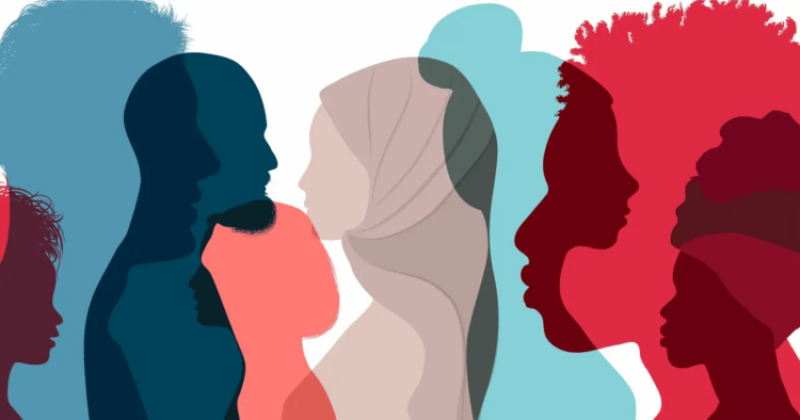Posted in : Blog
Posted on : February 21, 2024

Believe me, I’m being honest when I say that almost twenty years after immigrating to Canada, no obstacle has been harder for me to overcome than language discrimination. And that’s taking into account that I’ve become an expert at overcoming many types of obstacles due to stereotypes about my ethnicity (as a “racialized” immigrant living in Quebec), my physical characteristics and my sexual orientation, just to give you an idea.
I was indeed astounded to hear a recruiter say to me, during a phone interview, “Your French is acceptable, but we’d like to hire someone who speaks with a Quebec accent. But, please, don’t take it personally” [!]. Just to give you a bit more context, I’m not referring to one of my first experiences working in manufacturing in the early 2000s. Not at all! I’m talking about the year 2020, when the pandemic was hitting hard, and Quebec was facing a shortage of teachers in higher education.
At that moment, I felt a thunderclap and was overcome by different emotions. I saw my career path in “la belle province” flash before my eyes: the years spent completing a francization program (both oral and written) and working on three college certificates, my years’ experience as a digital entrepreneur with a solid business plan, my master’s degree in the field of modern languages (coincidentally, focused on learning foreign languages) …
That’s how I came to understand that language discrimination (also known as “glottophobia”) is alive and well in our society.
The term glottophobia was first coined in 1998 by French sociolinguist Philippe Blanchette. It designates contempt, hatred, aggression, rejection, exclusion of people, actual or alleged discrimination based on the belief that certain linguistic forms are wrong, inferior or bad. Although its creator primarily applied this definition to approach the variety of accents spoken in France as well as plurilingualism in certain territories of the French-speaking world, the term has also found followers in Canada. For example, University of Ottawa professor Christian Bergeron, who, in 2022, published a ground-breaking study on language insecurity and glottophobia in Ontario.
In this study, Mr. Bergeron highlights the linguistic, historical and cultural discrimination faced by Francophones both in predominantly English-speaking Canada as well as within their own Francophone communities. However, beyond these realities, we should also consider the discrimination experienced by many minorities seeking inclusion—notably Indigenous and non-Indigenous communities—who are not part of the two majority language groups.
These days, in the media as well as in certain academic circles, we hear more and more that glottophobia is one of the last types of discrimination to be tackled in Canada’s so-called multicultural society, one that follows more of an intercultural approach in Quebec.
Although glottophobia may seem more subtle than other forms of explicit discrimination such as ableism, ageism, xenophobia or transphobia, it’s just as hurtful. It triggers a process of stigmatization on the victim, producing a feeling of exclusion, a communication barrier, a lack of linguistic legitimacy, and a denial of identity. What’s more, it can have harmful consequences on physical and psychological health, such as lowered self-esteem, burnout, anxiety, depression or posttraumatic stress disorder.
In spite of this, and despite the fact that numerous measures and procedures exist at all three levels of government in Canada regarding access and equality in employment, to date, no province or territory has a concrete action plan in place to act against language discrimination. In a country where the immigrant workforce is a solution to guarantee economic development for years to come, we need to target and overcome this obstacle that hinders the productivity of organizations and businesses, and above all, harms the physical and psychological health of individuals.
At this point, the question arises: what can we do individually, with our work teams and within our organizations to counter glottophobia? To answer this question, a few possible solutions will be proposed in the second part of this article.
In the meantime, I strongly encourage you to educate recruiters who don’t hide their snide comments after having heard your accent. Above all, be proud! Your accent is a symbol of your identity.
Register for our webinar and join us as we guide a discussion on glottophobia and the Canadian workplace.
References (click here to review the sources)
Discriminations : combattre la glottophobie. Philippe Blanchet. Éditions Textuel, 2016.
« Est-ce que je suis assez bonne pour être ici ? » : anxiété langagière et discrimination linguistique en contexte scolaire québécois. Marie-Odile Magnan et al., Canadian Journal of Education 45:1, 2022.
Étude exploratoire de l’insécurité linguistique et de la glottophobie chez des étudiants universitaires de l’Ontario. Christian Bergeron, Philippe Blanchet and Mylène Lebon-Eyquem. Canadian Institute for Research on Linguistic Minorities, 2021.
Glottophobie. Philippe Blanchet in Langage et société, special edition, 2021.
How HR professionals respond to second language accents, Cesar Teló et al. on Talent Canada, 2023.
Language Identity and Discrimination in a Multicultural Society. Virginie Ekwere on European Journal of Linguistics, 2022.
Tags CCDI CDNdiversity Glottophobia DEI
Care over convenience: Centering DEIA in everyday choices
Calling all allies: sharing and learning from CCDI queer professionals
What we carry after bearing witness: Reflections on visiting the Auschwitz exhibition at the ROM
A Francophile in the Francophonie
A tribute to Canada and its role in the resettlement of Vietnamese refugees
Waves of difference: A personal reflection on racial discrimination and the ocean’s lessons
Gender in science and STEM: Possibilities for shifting perspectives
© 2025 Canadian Centre for Diversity and Inclusion. All Rights Reserved